A discourse-historical perspective, illustrated with the case of Colombia.
By Gisela Ruiseco
In this essay, historical power structures and naturalized discourses, construing our understanding of the Global South and North, are brought to the discussion table. The case of land appropriation in Colombia will illustrate their workings and show the importance of connecting losers and winners of capitalism/modernity in the imaginary of our present economic system.
________________
In our present Western imaginary, but also well widespread throughout the globe, we understand modernity as constituting humanity’s civilizatory peak, the “end of history”, bringing humankind unmatched welfare for an always-growing proportion of people. This narrative, drenched in coloniality, is still hegemonic in spite of the evidence that something is immensely wrong with the Western way of life.
The various socio-environmental emergency states we are confronting are enough reasons to set off all alarms. Our ravenous economy organized around limitless exponential growth, absurdly coupled with local and global growing inequalities, can’t constitute a model to be emulated.
We shall look in this essay at one way to reorient this arrogant imaginary which isolates Europe’s historical development. As power structures and discourses which we have become invisible are brought to the discussion table, we shall see the necessity that Global North and South become discursively connected. The case of land appropriation in Colombia will serve as an illustration.
A historical view
Our present predicaments are not surprising if we look at the historical roots of our socio-economic system. The usual narrative of how capitalism was born naturally and peacefully, as feudal restrictions could be overcome, and how the thrifty bourgeoisie gained momentum in establishing its own values, is quite a partial version.
It has been pointed out that capitalism was only possible after “primitive accumulation” took place. Let us go further than the usual European historical setting. As J. Hickel recounts in his book “The Divide” (2017), the age of enclosures in Europe (1500-1800) coincides with the historical movement in which Europe was acting upon its colonies abroad, appropriating lands of racialized, supposedly uncivilized people.
During early European colonialism, the ‘Other’ of Europe was declared as being less than human, as can be followed for example in the Valladolid debate in 1550. Following this logic, the enslavement of black people and the various arrangements made to appropriate the working force of the indigenous American population did not contradict Europe’s fledgeling humanist values, which could be thought as being only valid for the own population (what Boaventura de Santos has called “abyssal thinking”).
The scope of the drain of wealth from the colonies can confront modern ‘common sense’ around Europe’s role in ‘bringing civilization’ overseas. It is possibly known that silver from South America financed European industrialization. Perhaps lesser known is, for example, the degree of de-industrialization of the Indian sub-continent caused by British rule. In the words of the chairman of the East India and China Association (1840): “This company has succeeded in converting India from a manufacturing country into a country exporting raw produce”.
The darker side of capitalism
The interconnection between the history of colonialism and the present geopolitical and global economic order is usually ignored in mainstream discourse. We generally understand Europe as a unique and enlightened geographic unit, overseeing that, especially after the late 15th century, the possibility of such an autonomous development is a fantasy. The development discourse (or, earlier, the ‘civilizing mission’) constitutes the other side of this ‘individualizing-of-fates’ narrative: in our imaginary, the nations of the ‘third world’ have been understood as being isolated units guilty of ‘backwardness’.
Further, what has been called the “allochronic discourse” places the ‘Other’ of the West behind in time, and thus in need of development. This is an effective way of erasing the metropolis’ responsibility in the impoverishment of the periphery.
From the economy ignored, for the ‘market’ is supposed to be a neutral organizing force, shrouded structures of power hold the winners and the losers of modernity in place. The same movements which caused the colonies’ impoverishment during colonialism are still active in the present. “Accumulation by dispossession” (see E. Gudynas‘ reflections in this same platform) and the production of “artificial scarcity”, are ongoing processes.
This happens for instance through the imposed arrangement of unequal exchange: the South loses 30 times its aid receipts. Additionally, financial dependency, dictating structural adjustments, cancels democratic choice. Today, the Global North and its excessive level of production/ consumption relies on this net appropriation of resources and labor from the Global South.
Let us now concentrate on the aspect of land appropriation. Land: something we understand today as a commodity, which, seen historically, is a unique cultural understanding, particular of modernity. We will illustrate the issues we have been discussing with the case of a rather devastated country of the Global South.
At the commodity frontier
In my home country, Colombia, it is matter of fact to see the country as being always in transit towards ‘development’. The development discourse, with its corresponding legitimations and practices, even though long deconstructed, is quite well and alive, albeit not undisputed (in the past decades ethnic minorities have gained momentum in affirming their own worldview). One can still hear, when criticizing a domestic something or someone, the saying: “we are still savages”, depicting a “locus terribilis” to be left behind. It can even be said that imagining the nation in transit towards a future civilized state is part of the national identity myth.
Colombia’s land tenancy is one of the most unequal in the world, 77% of the land is concentrated under 13% of landowners. Basically, it is still structured around the heritage of colonial times after the dispossession of the original inhabitants. Land tenancy was furthered concentrated after independence. The country has never managed to pull through a very necessary agrarian reform.
This land concentration and exclusion can be considered the root of one of the longest armed conflicts in the world. The resulting human drama is abyssal: Colombia has held many years the infamous top ranks of the world’s internal refugees: since 1985 more than 8 million people were forced to abandon their land.
During the highly complex armed conflict, land grabbing has followed different stages, the total change of ownership encompasses 15% of the land, mainly to the benefit of big landowners and paramilitaries. Alliances between regional political and economic elites with paramilitaries and drug traffickers, even influencing national legislation (narcopolítica), is complemented by international financial interests.
The State has played various roles and has certainly been a facilitator. Identifying idle, ’empty’ land, many times a rhetorical figure, for it can involve ancestral land of natives and farmers, has been one first step. Before 1960 the State did support small and medium farmers in accessing technical facilities, and this has some continuation in the 70’s with the “Green Revolution”. After the neoliberal turn around 1990, however, politics supporting small and middle landowners were basically dropped. The agricultural plan of 2011, for example, had the goal of facilitating access of big scale agricultural investors to frontier land. Organisms such as the World Bank or USAID, have intervened, through money lending or development aid, to facilitate big investment in rural areas.
Land grabs happen at the agrarian frontiers, rich in natural resources and illicit crops, zones which endure poverty and the absence of State institutions. Thus, Colombia is and has been a painful “commodity frontier”, providing cheap nature for capitalism, a condition facilitated by its vast and rugged geography. A familiar ordeal throughout capitalism in its expansion to subjugated, non-capitalist sectors.
In Colombia violence has become normalized. The country even poses the question: Are we somehow intrinsically violent? One could actually turn this narrative around, and this is the point here. Perhaps violence is in fact intrinsic, but not because of some perverse national character, rather because of the role that the country plays in the capitalist world-system. It is the developmentalist power structures themselves which would be maintaining the spiral of violence.
It becomes urgent to reset our imaginaries and to bring the problems of a ‘developing’ nation, struggling with its own supposed backwardness, into the global, capitalist, present time and its power structures. For global politics are today essential in promoting ‘land grabbing’, prompting dispossession. Tragically, the richness of a country: rich in biodiversity (still), rich in different climate zones, rich in water, seems to be its doom.
A Rural Reform would correspond to the first point of the Havana peace agreements signed with the demobilized FARC guerrillas in November 2016. In fact, the present President Petro, unlike his predecessor, has made at least a beginning of advancements in this direction. This government has a rather titanic task in front of it. Irritating international investors, i.e., confronting coloniality/ capitalism, seems unavoidable, but it seems urgent not to fright from taking acton. Moreover, Colombia should not be left alone in defying such deep rooted structures.
Developmentalism’s hegemony can still be very powerful, giving fundament to long-established elites and a highly destructive status quo. De-localizing our imaginary around supposedly autonomous nation-states, disentangling it from development discourse and showing its interconnections in global capitalist structures, is a priority. And not only in the Global South.


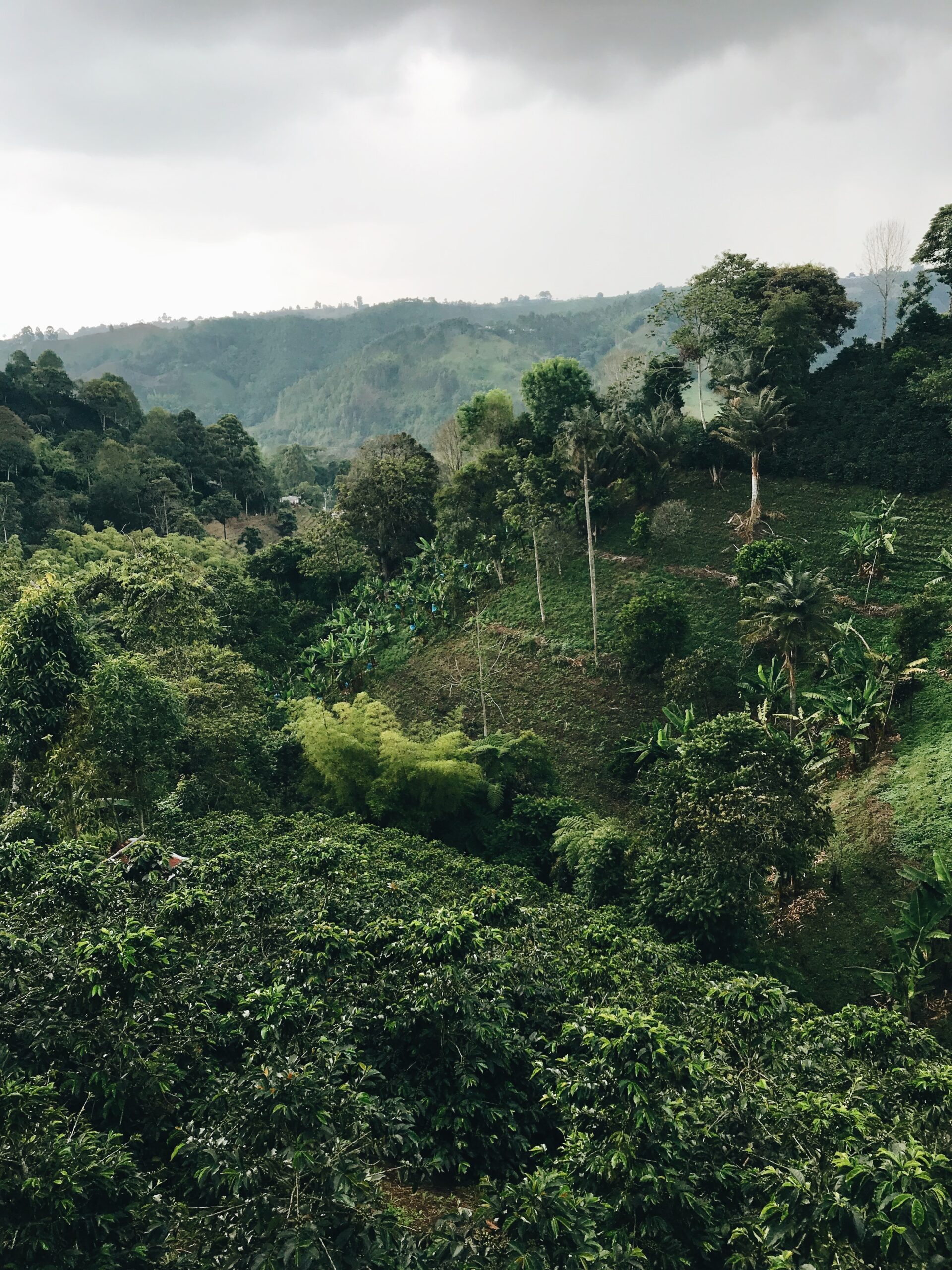
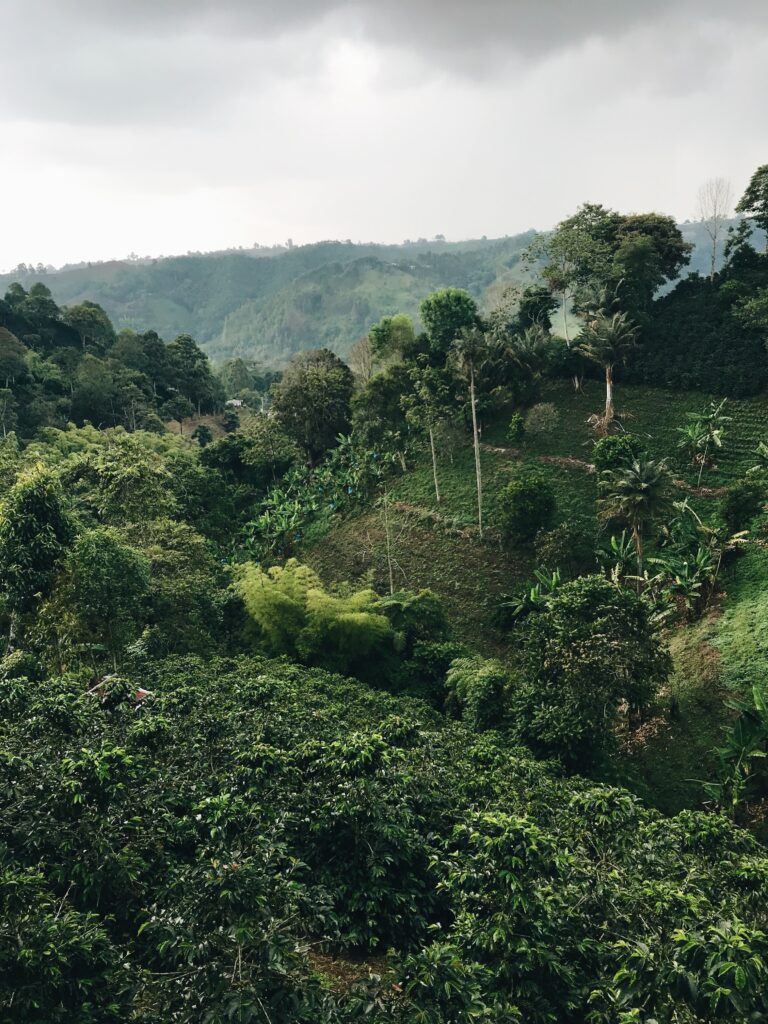
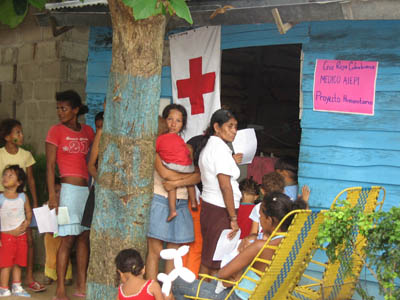
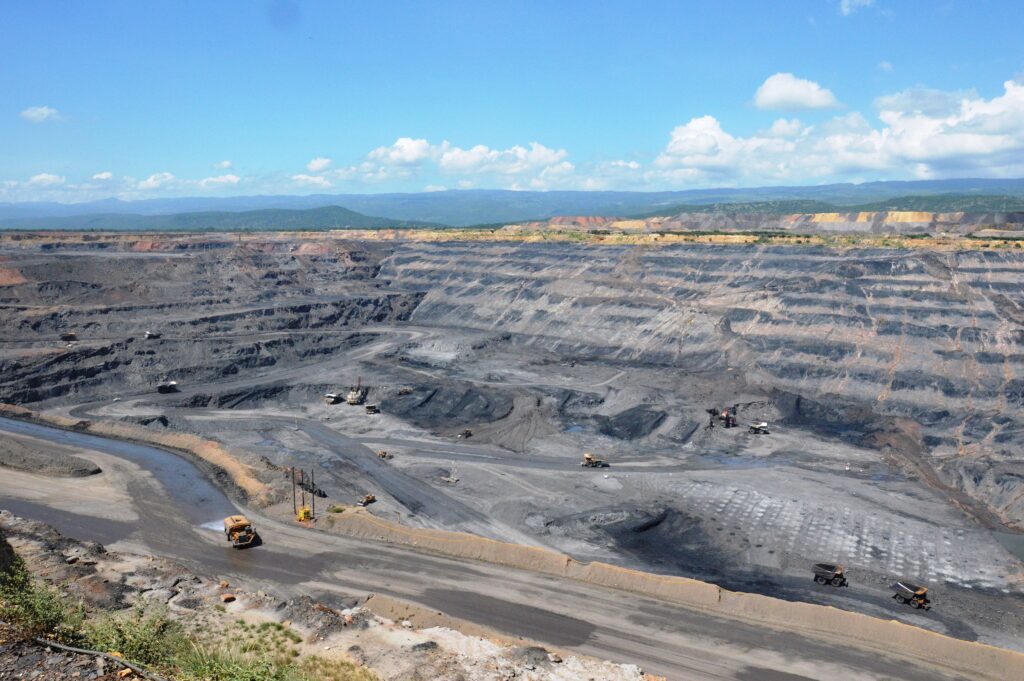
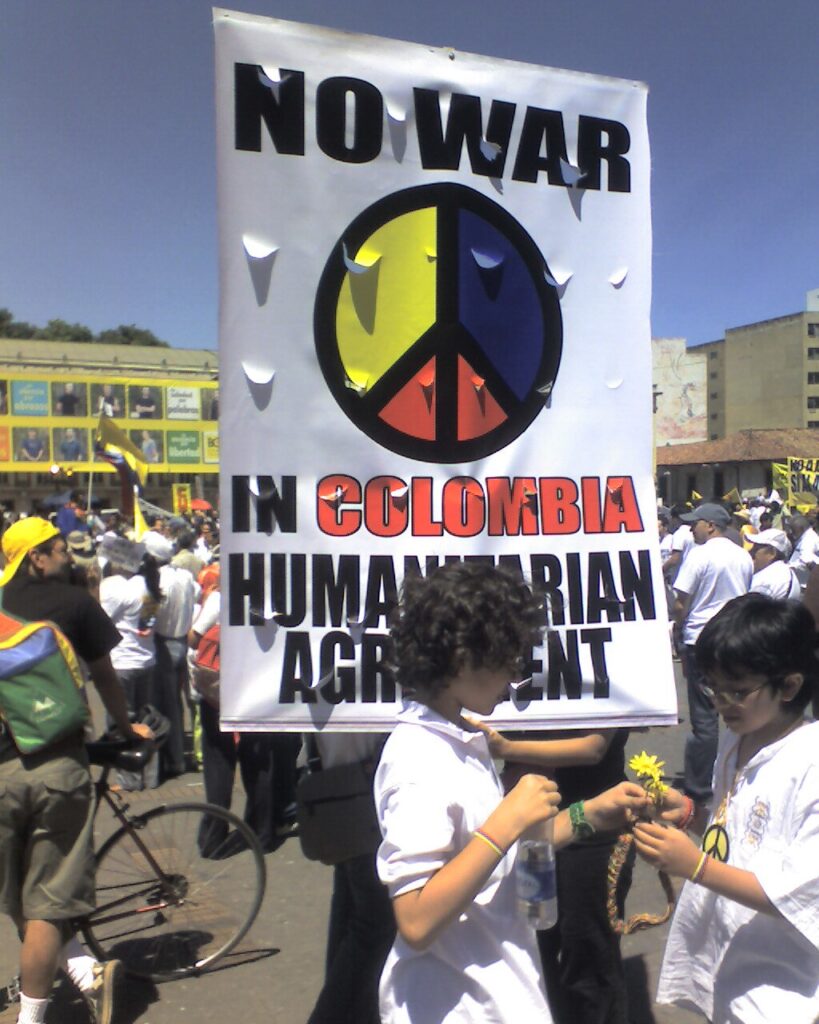

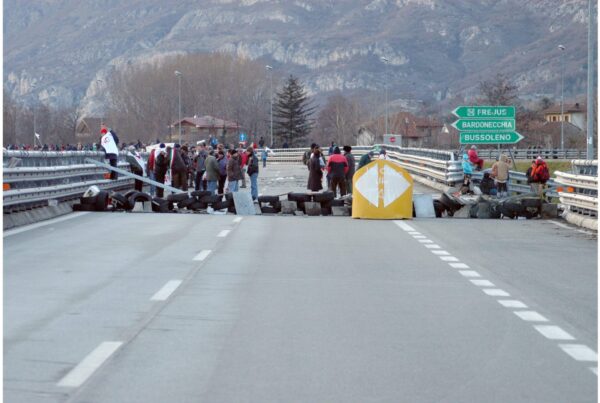

One Comment